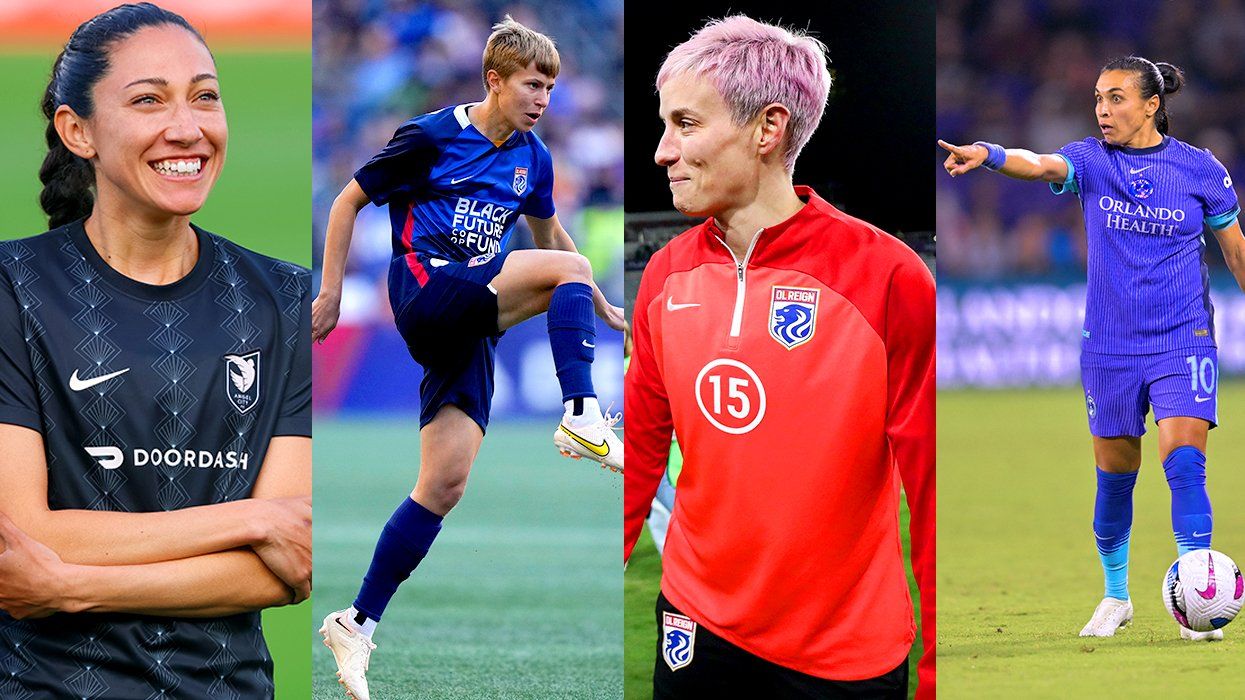A former ad executive turned writer and producer, and a fitness aficionado with a fitness / health column appearing in Curve Magazine, Jill Sloane Goldstein is so much more than what The Real L Word would have fans believe.
As half of the stable, loving couple that meticulously planned their wedding during the premiere season of the Showtime reality series The Real L Word, Goldstein and her then fiancée, now wife, Nikki Weiss were portrayed as singularly-minded in their pursuit of the dream wedding.
But one glance at Goldstein’s bio and a 45-minute conversation later and it’s clear that she’s a renaissance woman of sorts, having conquered the cutthroat world of advertising before turning to writing and producing while still finding time to sculpt the perfect set of abs and maintain an admirably loving relationship.
While Goldstein and Weiss’ stunning Malibu wedding last October was indeed chronicled with a Curve cover story, Goldstein has since been busy honing her various writing skills, including building a portfolio of commercial treatments, working for NBC Universal’s branded content division, penning her fitness column for Curve with the everywoman work-out perspective, and developing her docu-series on sexual fluidity that was showcased briefly on The Real L Word.
A New Jersey native, Goldstein earned her BA in Communications and Marketing from the University of Michigan before heading off to New York City for four years. She followed up her stint in New York with seven years living and working in the San Francisco Bay area before moving to Los Angeles in 2008 to follow her heart. As a writer she’s contributed to the Independent Spirit Awards, the American Music Awards and Dick Clark Productions.
Goldstein sat down with SheWired to discuss what it was like having her amazing wedding come to fruition, her fitness philosophy, sexual fluidity, her wonderfully supportive Real L Word fans and the downside of being erroneously portrayed as essentially a stay-at-home housewife on national television.
SheWired: Thanks so much for chatting with me. I know you and Nikki were married last fall but I have to ask, with all the preparation for the wedding – much of which we got to see on The Real L Word - how was it having that dream come true?
Jill Goldstein: Hands Down! Best day of my life! That day even far surpassed my expectations. It was so perfect because we had the closest people in our lives there and there was so much love and support for us and our relationship, and that’s what really blew me away. It didn’t matter that we were two women, it didn’t matter it was a gay wedding, it was just people celebrating two people in love, and that’s what moved me the most.
SW: Were you both able to have all of your family that you wanted attend?
JG: We were, and it was really nice.
SW: Did you Honeymoon?
JG: We did, we went to Maui, which was good. It was gorgeous and a very nice relaxing vacation. I definitely understand the concept of a honeymoon after planning and having a wedding. Whoever invented that break was smart.
More on next page...
\\\
(continued)
SW: Even with the most meticulous planning and prep for a wedding, some times there are just things that go wrong that are beyond control. Do you have any funny anecdotes about something that went awry that you can laugh at now?
JG: We had the most amazing wedding planner on the planet and I have to tell you that she shielded us from everything.
The only thing that comes to mind that makes me laugh is that we were so neurotic about getting as many heat lamps as possible. The last thing you want at an outdoor wedding where there’s no indoor reprieve is to have people uncomfortable, so we were constantly calling and saying, “add another one, add another one.” We had probably a heat lamp per person on a magnificent 80-degree night, and we didn’t turn one on.
SW: Shifting gears a little to what you’re working on now, how did you come to write a fitness column for Curve?
JG: I’m fortunate to have gotten the opportunity. We were in contact with Curve for our wedding coverage at the time, and I am a writer. Fitness happens to be a personal passion of mine. I asked the editor there if she had anything of the sort, and they hadn’t covered fitness.
The angle that I wanted to get across was that I’m not a trained professional and I don’t have a fitness license. It’s an everyday person’s perspective. I’m not talking at you, I’m talking with you…telling you what works for me. They loved the idea and gave me few issues.
SW: What is your personal fitness philosophy/plan?
JG: I joke around about the motivation that it takes to work out because it’s hard, and it’s easy to back out when you say you want to. I always have that conversation with myself, that in an hour I can be sitting in the same spot and just feeling better physically and emotionally -- if I just go. Either way, the time’s going to pass, so I might as well enjoy that feeling.
More on next page...
\\\
(continued)
SW: Do you have an exercise routine that you follow?
JG: I don’t follow a very specific workout regiment. I kind of do what feels right. I do a lot of cardio – I happen to really enjoy running – but something I’ve actually learned recently in the past year is challenging yourself and muscle confusion, and that’s what I think has worked for me and gotten me the best results.
I talked to a lot of people and read a bunch, and I’ve learned that the body… the body wants to plateau.
SW: Tell me about it. That is my ongoing struggle.
JG: The body does not want to work hard so it will find a way to do what you are asking it to do expending the least amount of energy. It’s muscle confusion and constantly pushing yourself to do something that’s uncomfortable. That’s when the changes happen and that’s kind of what worked for me.
SW: Can you give me and example of that in a nutshell?
JG: My treadmill workout used to be hopping on and running maybe at seven miles per hour for 30-45 minutes. And you think, ‘it’s a good workout,’ which it is, but instead, what I try to do is interval training. So, I run for two minutes at that pace, then sprint as fast as I possibly can for a minute. Then back down and get to that comfortable zone again, and then raise the incline on the treadmill to as high as I can possibly do. And it’s really making your body work, you know – it’s supposed to be uncomfortable.
SW: For somebody who has a day job, who is not a trainer spending six hours a day in the gym, what is a reasonable amount of time for you to be taking care of your body in that way?
JG: I prefer to dedicate about an hour a day, and I’ll try to work out about five days a week. And that’s worked for me. I think if you can find at least 30 minutes in the day to get your heart rate up or to lift or do something, I think, is very beneficial.
SW: Do you have a specific diet that helps you remain at your prime?
JG: I would definitely classify myself as a healthy eater. I guess you can call it a pescatarian, I don’t eat meat or poultry, but I eat fish. And I’m watching my carb intake and my fat intake. I’m not on a very strict diet. I just happen to love vegetables, so I eat a ton of them.
You asked me about how much time people should allot. I joke around -- if you have the time to sit and watch TV and you’re sitting and watching a two-minute commercial, you can be in the plank position for a minute while you’re doing it.
SW: I love it. I’m going to start dropping down into plank around the office! Moving on to your other projects, your documentary on sexual fluidity was mentioned on The Real L Word if I recall.
JG: Right, I believe it was in the second episode. We had a meeting with the production company that we’re teaming up with and they followed us there. We’re glad that it did get some exposure because it’s a project that’s very close to mine and Nikki’s hearts.
SW: What was the catalyst, or the germ, for this project?
JG: It actually started years ago when a very good friend of mine had showed me an article in the New York Times that referenced Lisa Diamond’s book about sexual fluidity. And for me it was that “ah hah” moment that really just describes my journey so well. It was the first time I actually read something that really felt like it fit my own experiences. And from there, we started discussing how common we think this idea of sexual fluidity is, but it doesn’t get a lot of dialogue.
Fortunately there is wonderful and abundant content, I think, now more than ever, that addresses being gay, which is wonderful, but I don’t really think that fits everyone’s experiences.
More on next page...
\\\
(continued)
SW: Can you expound on what goal you aim to achieve with the series?
JG: It’s just been this quest to shine light on this area that Lisa Diamond talks about, which is really described as a situational flexibility. A situationally dependent flexibility in your sexual orientation... It puts the idea forth that our experiences in life, who we meet and how we are affected by people, kind of sway our attraction. And it’s not black and white. The labels that society imposes on us don’t often fit our experiences. If we can free ourselves of those labels and say, “well, I’ve fallen in love with a woman. It may run counter to my sexual orientation,” and free the need to label people, I think people would probably feel a lot more comfortable exploring those attractions.
SW: We’ve had lively conversations on SheWired regarding sexual fluidity. We get comments ranging from, “people love who they love” to “if you’ve slept with a man, you’re not a lesbian -- period!”
JG: My personal belief is that it’s not as clear-cut as people want to make it.
SW: Where are you in the process of developing the project?
JG: We’re in the process of fleshing out episodes, and we’re in discussions with a major network that has been interested -- a major cable network, which is wonderful for us. I hope that it will be on air and we can watch it within the next year. That would be my goal.
SW: Now that you have some distance from it, how is it looking back at The Real L Word and the way you were portrayed?
JG: I feel glad that we were a part of it because I think the results that Nikki and I have experienced have been very gratifying, and that our lives haven’t changed.
But what has happened is there’s this amazing outpouring of women that have said it’s helped them. That showing two women building a life together and planning a wedding has shown them that they too can have that. Or, we’ve had women come up to us who say, “Thank you because my mother understands me better now.” So, things like that have been really, really gratifying.
SW: I know that Nikki released a statement saying that the two of you chose not to return to the show, but of course there is scuttlebutt implying that you weren’t invited back.
JG: It was a little disheartening to see the media come out and say, “Rest in peace to the cast who didn’t make the cut.” We made the decision not to move forward with season two after season one had aired. It is what it is, and we’re not going to chase people down to try to explain ourselves. We’ve met some amazing women in the casting process, which has also been a great thing to come out of it. As far as how we were portrayed, it took me a minute to realize that it’s television, it’s an hour, they have only a limited time to tell everyone’s stories, so they have to cut you down to - I guess - one storyline.
More on next page...
\\\
(continued)
SW: In reading your bio it is pretty glaring, with all of your many accomplishments, that the show basically portrayed you as housewife.
JG: Yeah, they did, and it was a little bit hard to watch. In fact, they followed us for 12-plus weeks and they followed our work, they followed me – you know I actually wrote for the Independent Spirit Awards, and it took a lot of leg work to get them to come on set, and they covered that, which was a lot of fun.
There were so many things in our personal lives and our professional lives that you never got to see because all we did was plan a wedding and, you know, bicker about money for nine weeks. And, I think, the hardest thing for us as two professionals who do work very hard, was the suggestion that we had this money tree in backyard that we picked from to pay the bills for the wedding.
SW: I’ve read feedback about the show in which you and Nikki are categorized as privileged and rich.
JG: It couldn’t be farther from the truth. Nikki has had her company for over 18 years and worked tirelessly to build it, and I certainly have a career that I’ve worked very hard to achieve. It’s hard to sit back and watch that perspective painted when it’s very far from the truth. The editing and the story that they told--while in some ways very helpful because it did paint a nice picture of relationships and the type of life you can lead in terms of marriage—did not do much justice to showing who we are as well-rounded people.
But I think that opinion of us as just wealthy women, and myself as just this housewife that sits behind the Mac screen in her kitchen, who doesn’t do much, and gets her nails painted by her spouse… you know, it wasn’t very accurate.
I understand where the viewers might form the opinions that they have based on what they see, because that’s what they have to judge us on. We got a lot of feedback about how boring we were and how all we did was talk about the wedding. And you sit there and say, “well that’s not true and that’s not our fault.”
SW: Moving on from The Real L Word, are there any other projects you have in the works that you’d like to mention?
JG: The sexual fluidity docu-series is really probably the biggest passion project for both of us right now. And the Curve opportunity is fantastic right now.
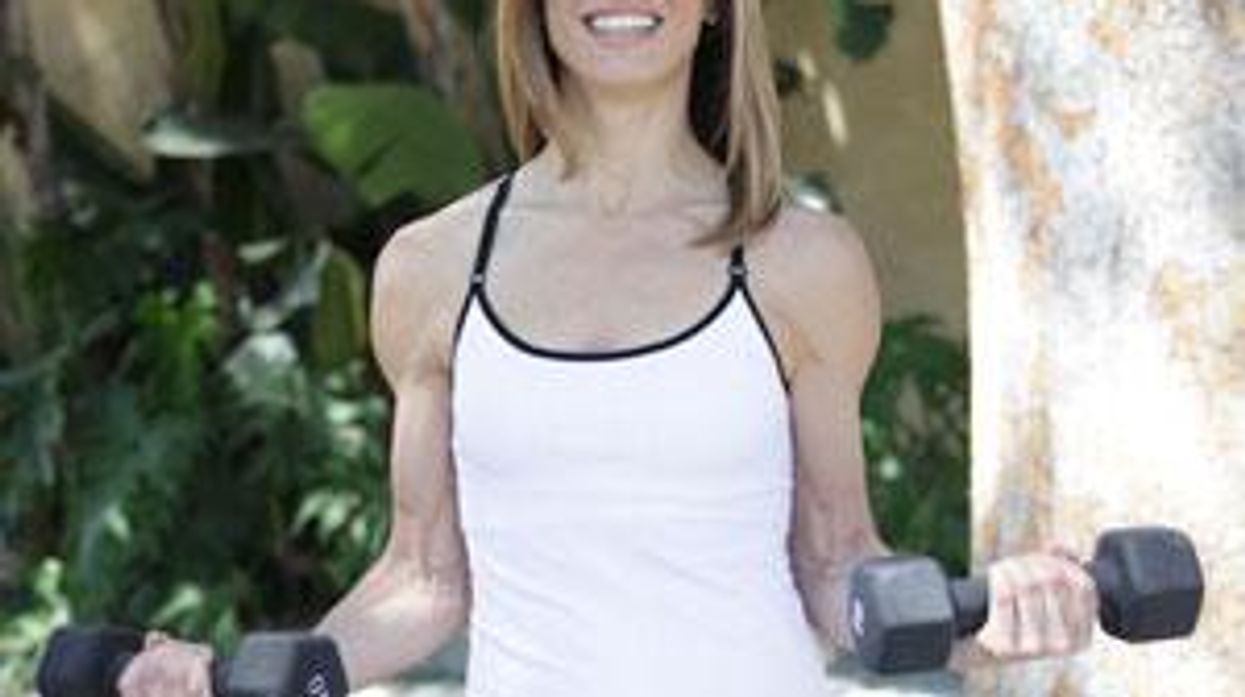

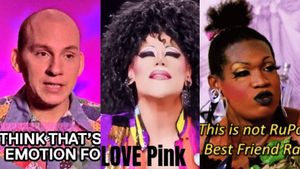

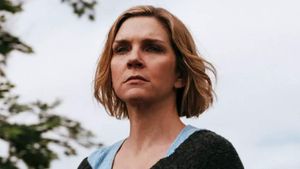
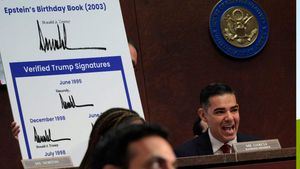








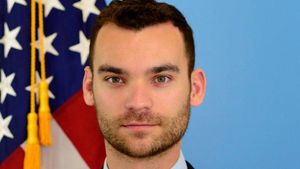


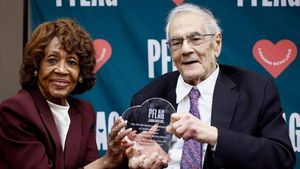











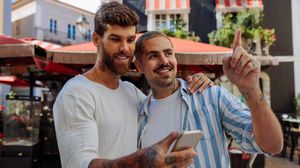

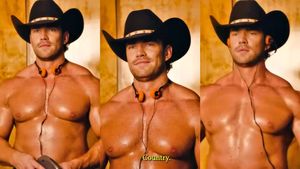



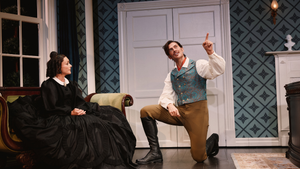




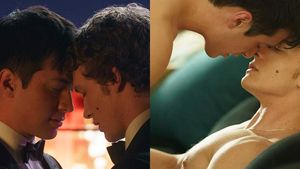
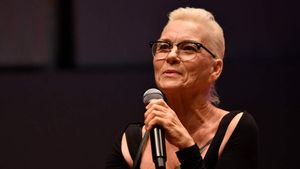

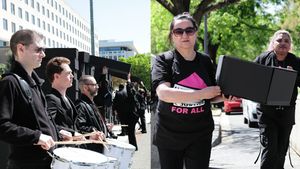


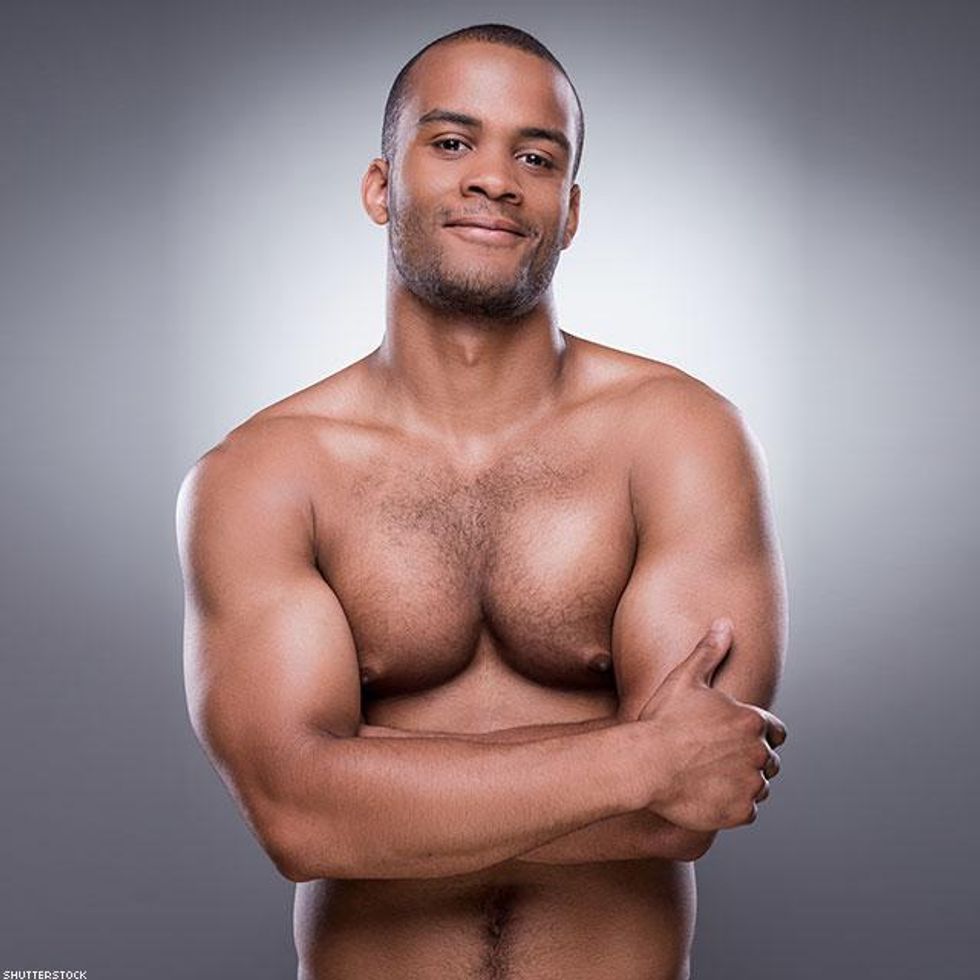
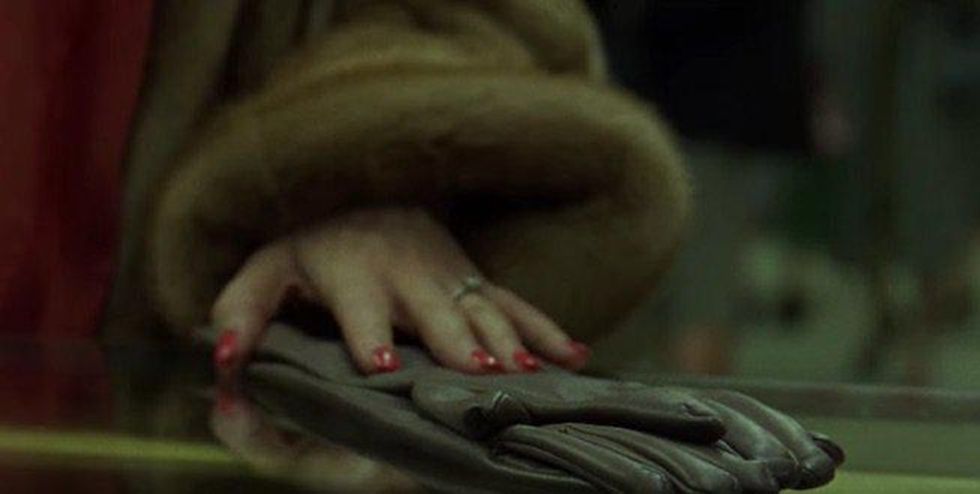


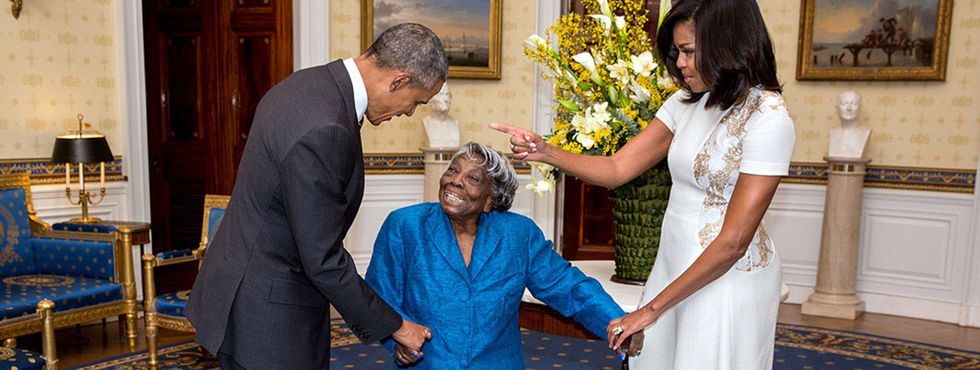
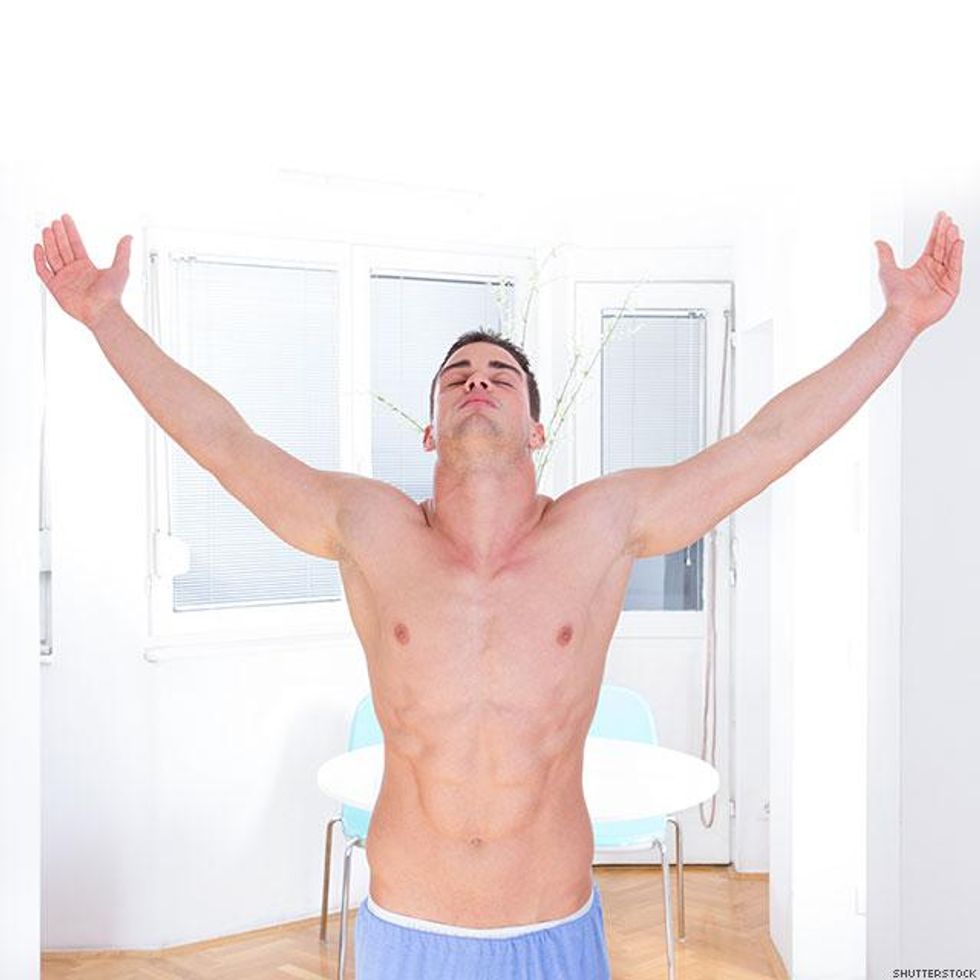
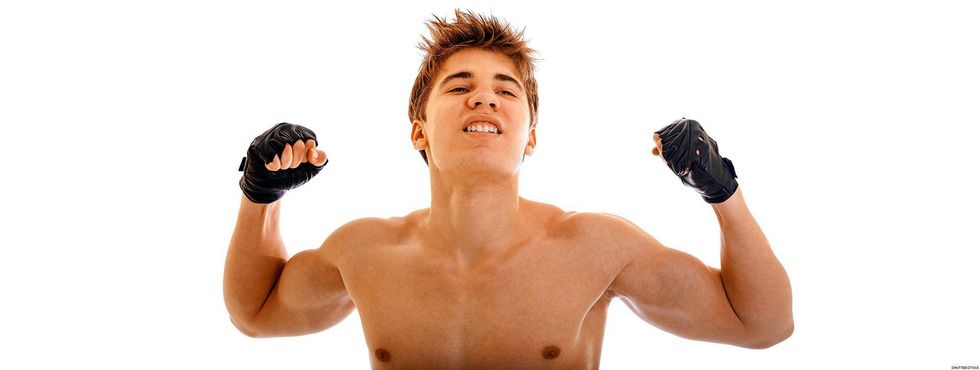
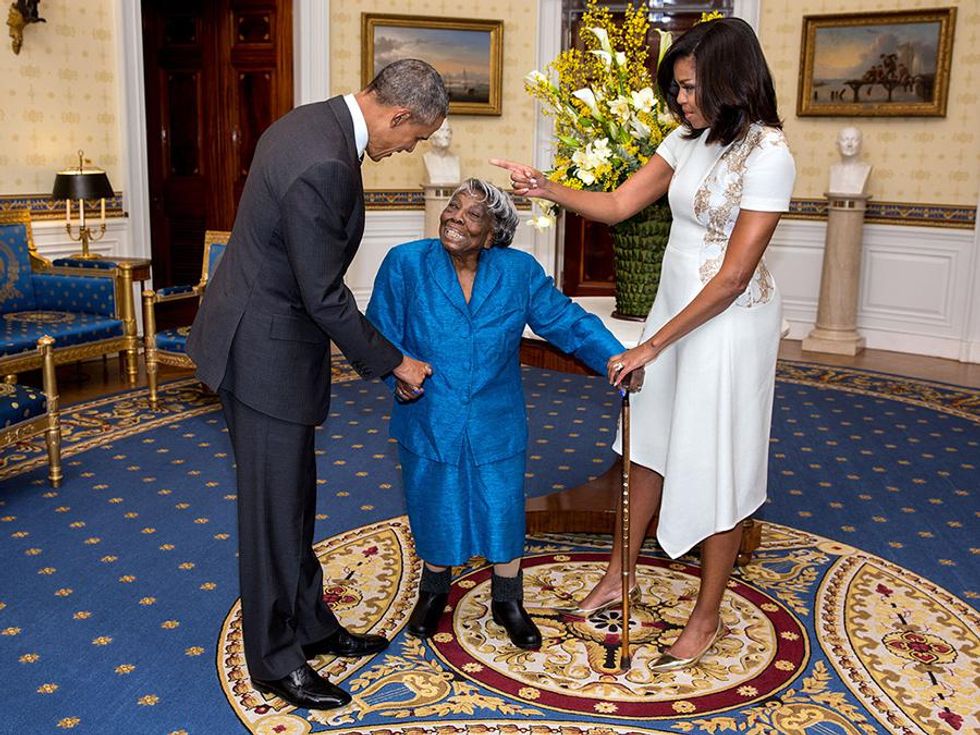
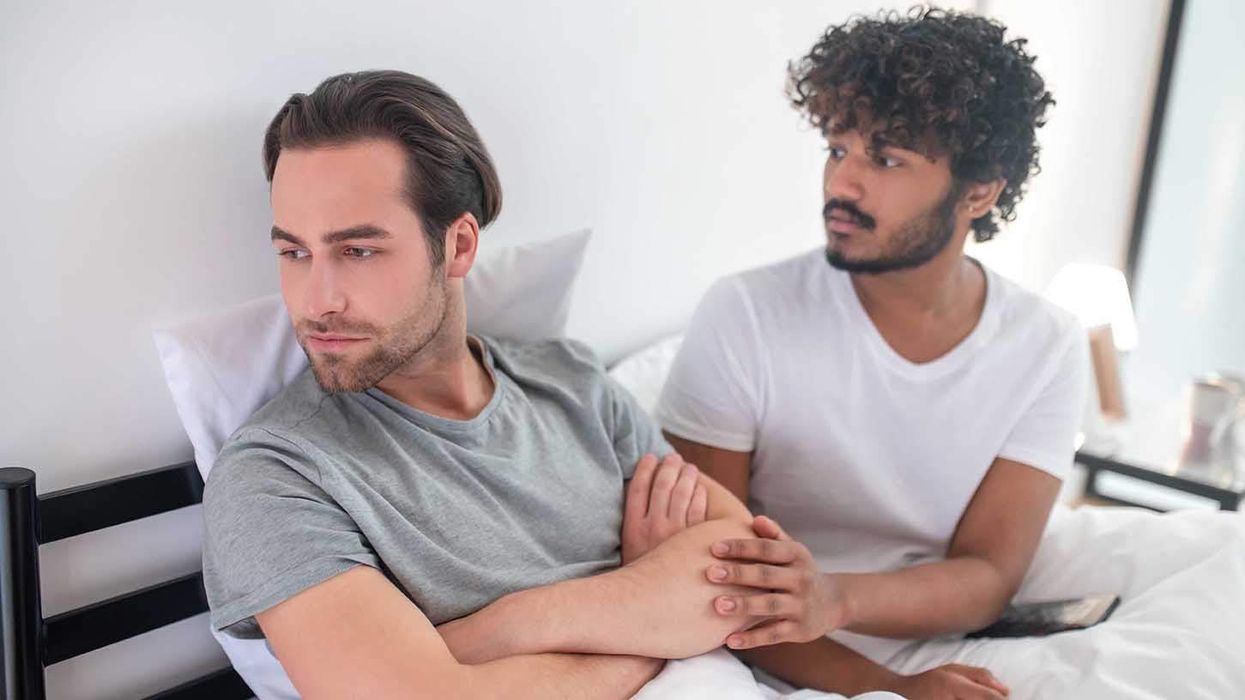
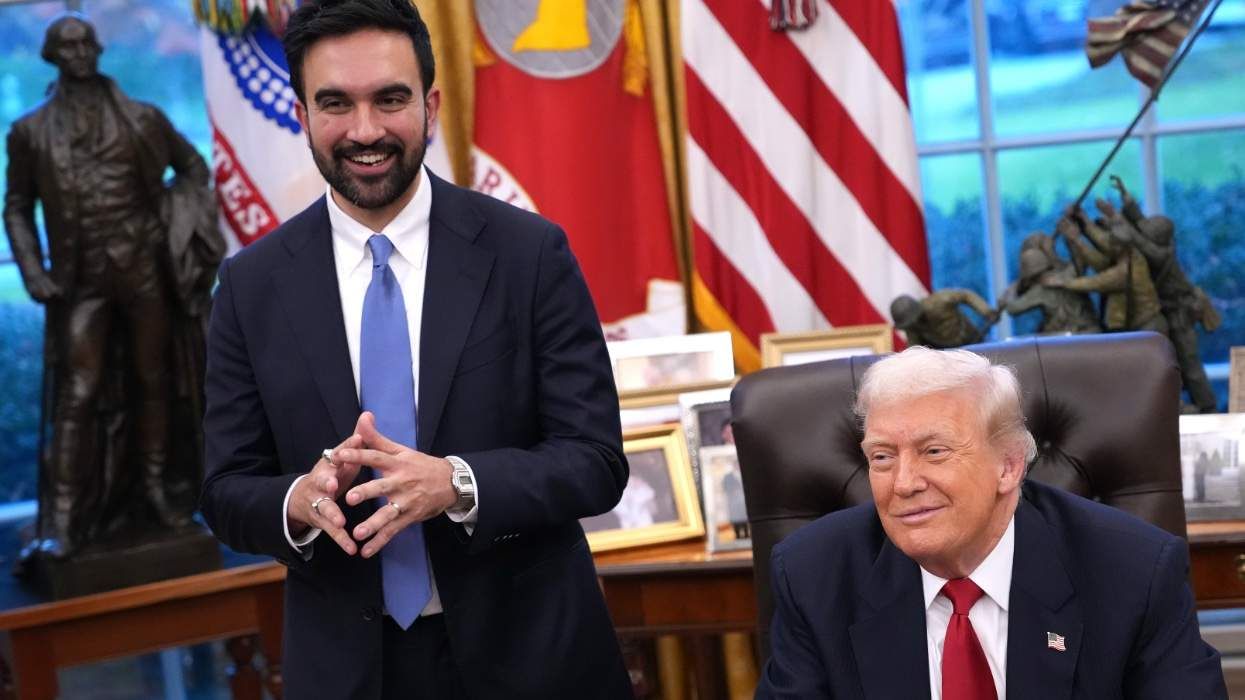
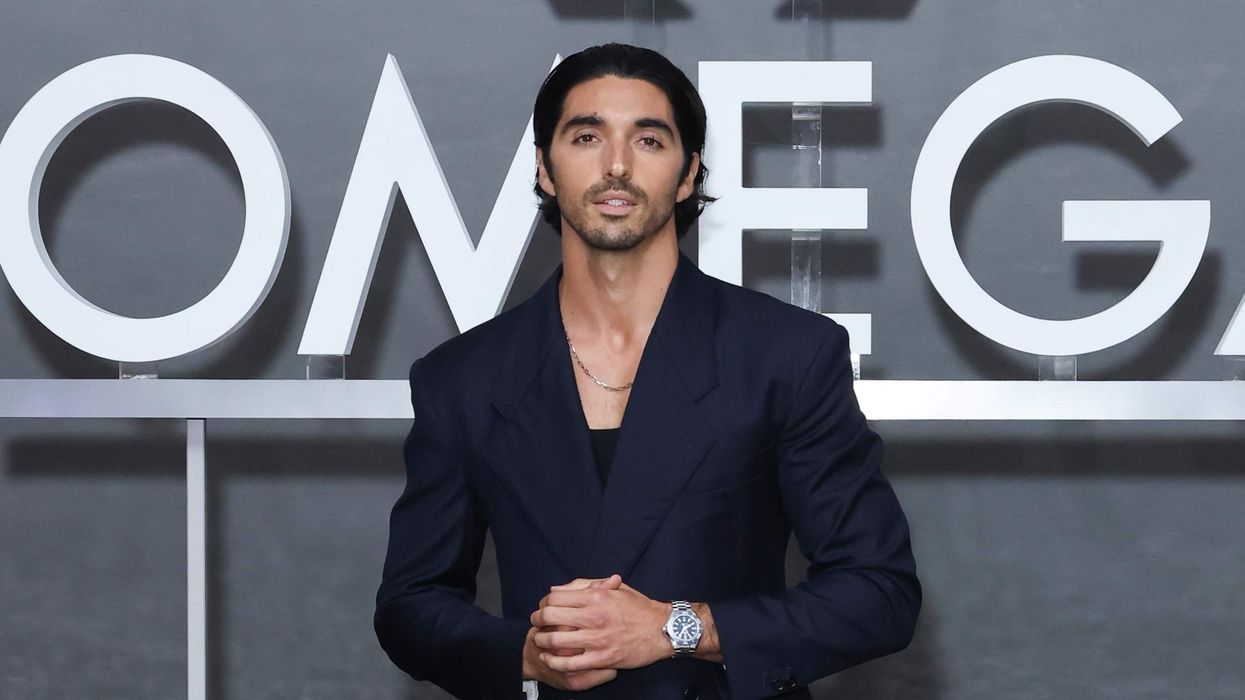
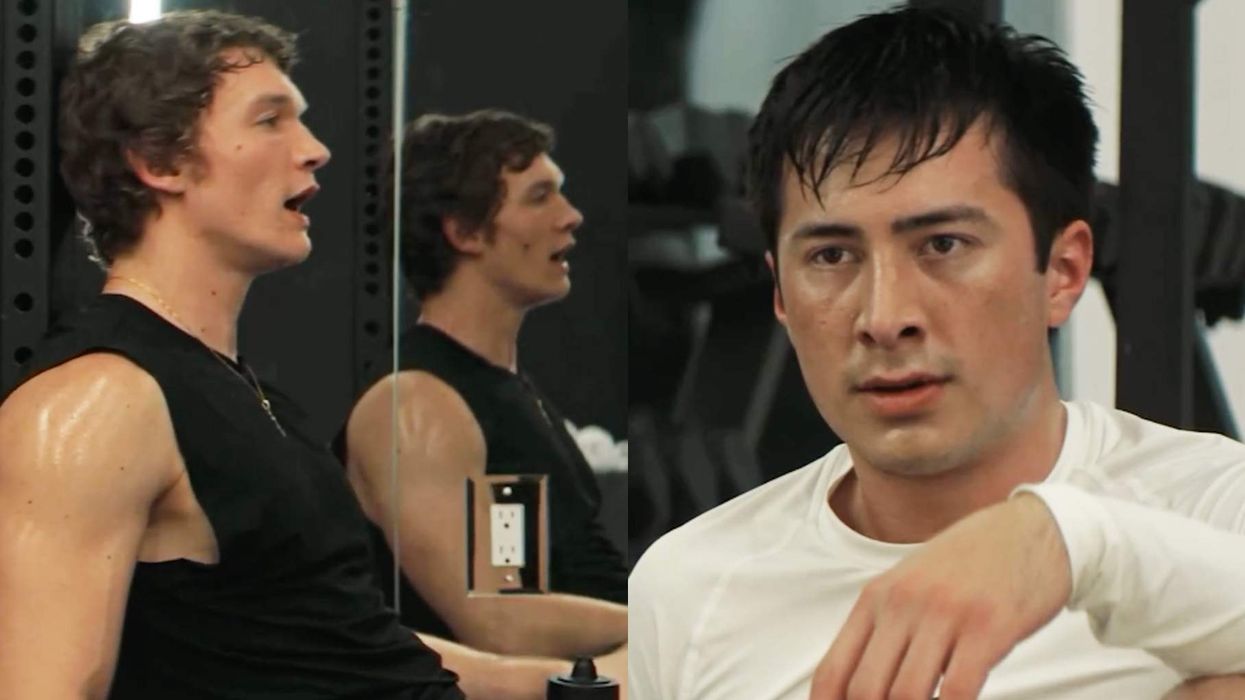






























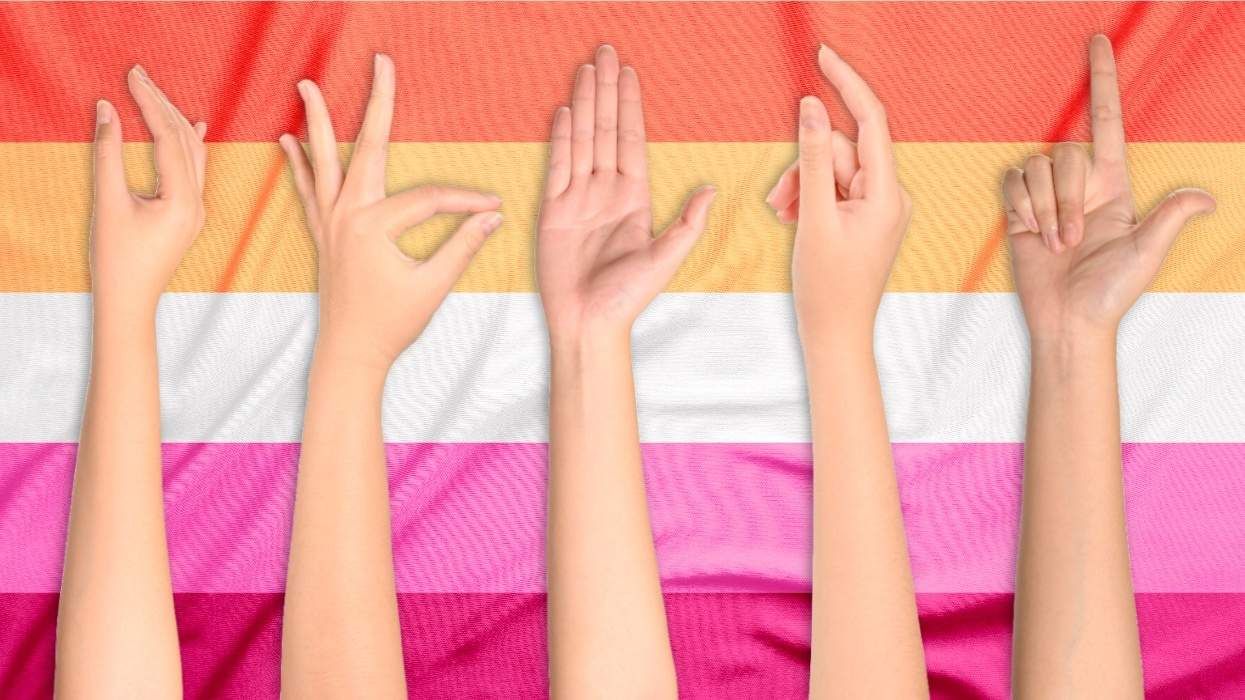
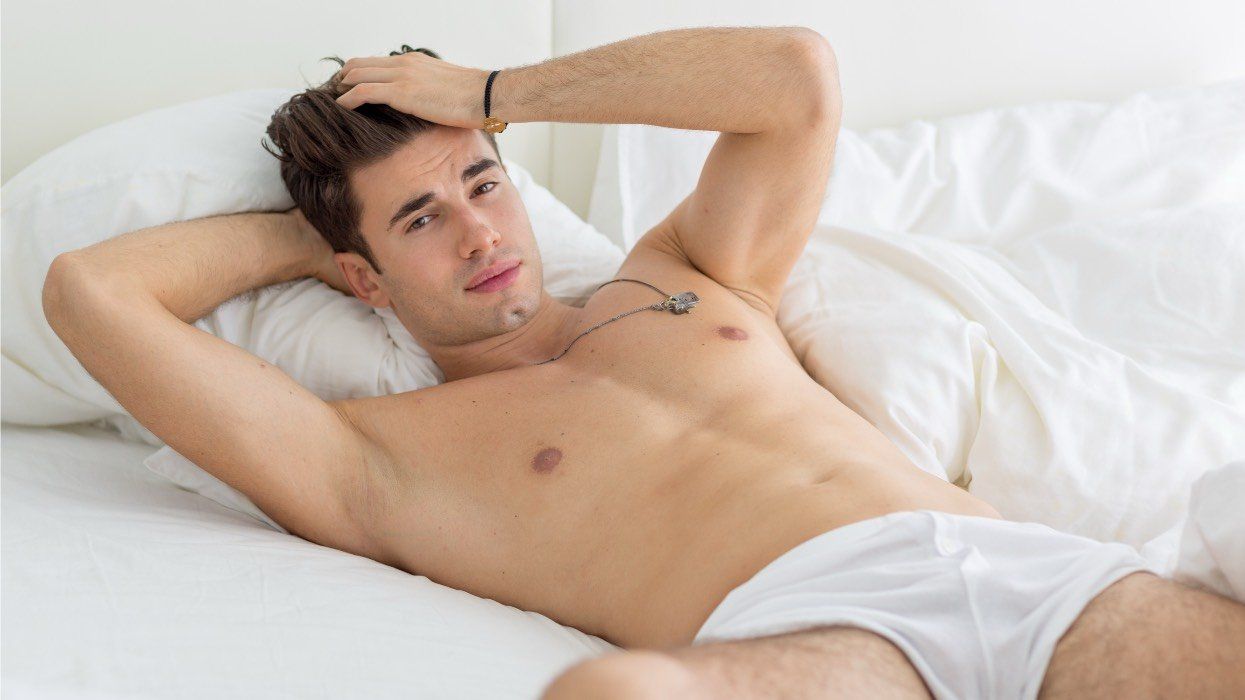
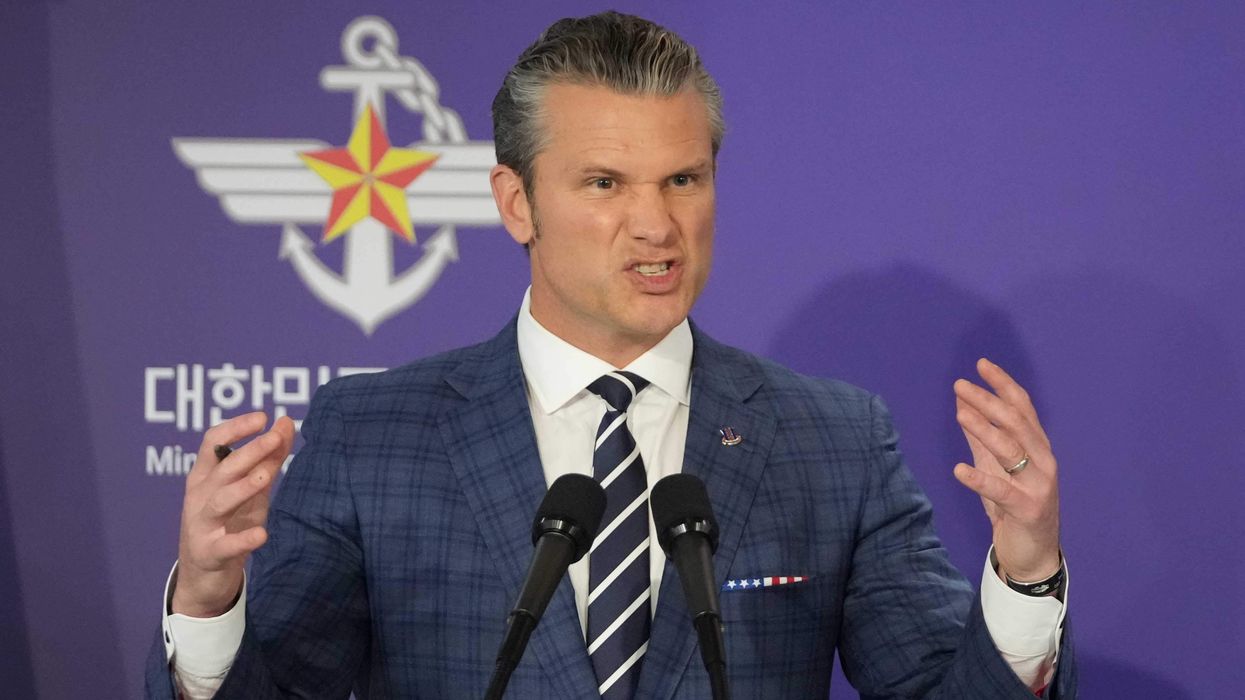

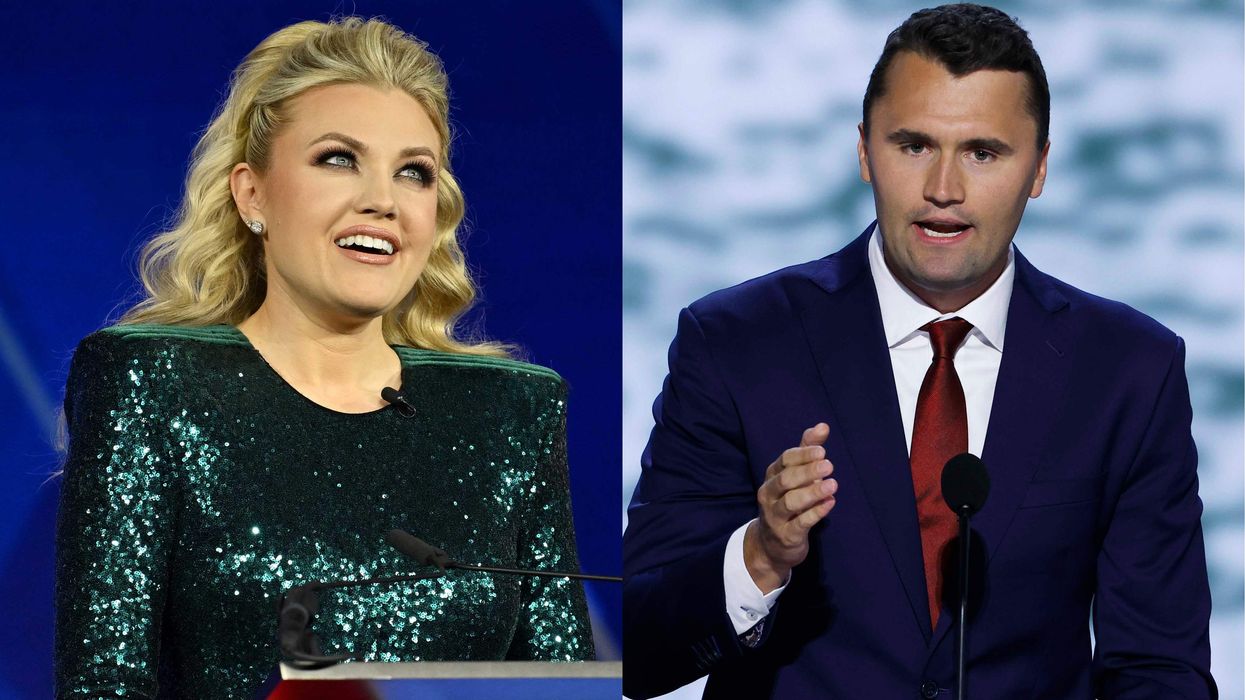
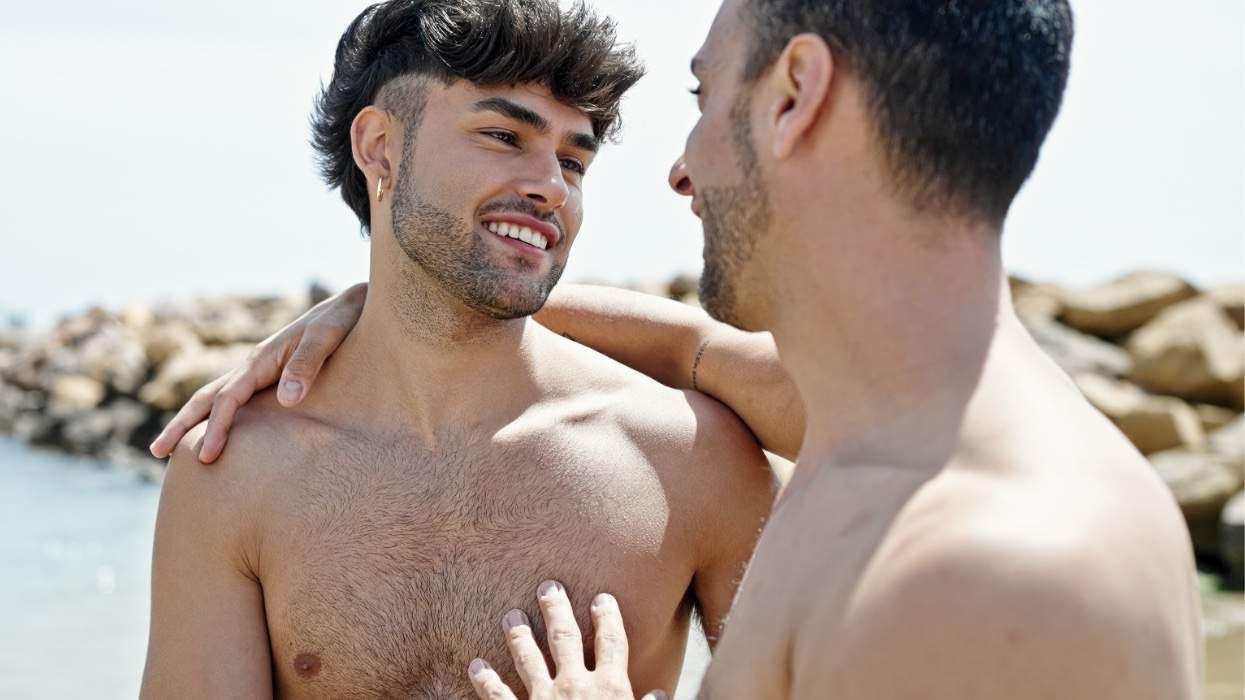

 Cindy Ord/Getty Images
Cindy Ord/Getty Images
























